TRAINING FOR SECOND, THIRD CATEGORY AND JUNIOR RIDERS
ROAD AND MTB (MALE AND FEMALE)
This is the third article in this series. I would like to thank all the riders who emailed me saying how much you enjoyed the articles and how beneficial they have been to you. It seems that they have changed how training is carried out by a lot of riders. I hope this article puts the final touches to your fitness for the season and that you all have a very enjoyable season.
If you let me know what coaching topics that you are interested in seeing I will endeavor with Peter's support to bring some of the topics to you.
PRE COMPETITION PERIOD MID FEB - MARCH:
This period of training is crucial in the development of your race specific abilities. More intensive sessions are now progressively included in the training. Some of the training efforts become more competition specific and races are introduced.
Race specific training is difficult and you must be disciplined and be prepared to handle the pain that some of these efforts produce. Some of the successful international and professional riders that I coach actually do some sections of their training harder / faster than racing efforts.
AIM OF THIS PERIOD:
* To refine competitive techniques, Bit and Bit - pace judgement etc
* To improve max aerobic capacity
* To improve specific strength / power
* To improve tolerance to intensive efforts
* To assess your fitness and improve specific areas
If you have followed the previous articles and completed the volume of training necessary to develop a base or foundation for this more intensive training you should now gradually increase the intensity of some of your training sessions over the next weeks.
If you have not got a good foundation of training completed over the past months you should postpone the pre- competition period until you have a suitable foundation period completed.
When training becomes more intensive it is advisable to slightly reduce the overall amount of training hours to balance out the overall workload. The intensity must not be increased too quickly, or the total volume lowered too much or performances may deteriorate.
WHAT TYPE OF EFFORTS?
Work on your strong points; try to make your strong points very strong. Also work on areas that might not be so strong that will make a positive difference to your performance.
Efforts will vary from very short sprint like efforts, to longer efforts at medium to high speeds depending on the type of race you wish to perform well in. Think of the kind of efforts you make in races and mimic them in training. (See Photos Below)
The intensive efforts during this period should be done fast but smoothly and relaxed, controlling the speed of the efforts so that you can finish the amount of training you set out to do. Higher gears and cadences should gradually be used as your fitness improves.
HOW MANY INTENSIVE SESSIONS?
Most riders will get benefit from one or two sessions per week. More than two may be less productive to a rider who must work or study as well as train and may even lead to over-training problems.
HOW MUCH SHOULD YOU DO IN EACH SESSION?
This is very individual and I cannot be too specific, some of you will have had tests in labs, which advise intensity and which sessions to include, and this will be very useful.
Otherwise if you include some race speed efforts of varying distances from 200 metres up to 10 kms in one or two of your weekly sessions you will improve your ability at race speed.
The amount will depend on your:-
- Age
- How long you are competing and training
- Current training status
- Recovery from recent training sessions or competition
Do enough to produce a strong training effect but not so much that you are over fatigued from the session. You should be recovered from a session within a few hours to the extent that you could do some studying etc. Always plan to finish the session feeling that you could do some more.
HOW MUCH RECOVERY BETWEEN EFFORTS?
This will vary from about the same time or less as the effort time for the longer less intense efforts, EG 2kms and longer. The shorter very intense efforts EG 200 metres to 2kms will generally require longer recovery times so that the effort can be repeated at high speed.
WARM UP AND COOL DOWN:
A suitable warm up (15 - 20 minutes) to prepare the body for intensive efforts and cool down period (10 - 15 minutes) to assist recovery is an essential part of the intensive sessions.
WHEN SHOULD YOU INCLUDE THE INTENSIVE SESSIONS?
Preferably on days that you are recovered from other training sessions! Following a rest day for example.
RACES:
It takes a few years of experience before you will know how many races it will take for you to get to peak fitness. When races begin, compete in them according to your current level of fitness or when you want to be at peak fitness. For example if you are very fit and capable of getting very good results you might race very competitively.
If you are still building your fitness and aiming for good form later in the season you might aim to finish the races without getting too involved at the front of the race.
Races will generally improve your form. However it will not be beneficial if you are getting dropped early on in races, if this is the case, either you are racing at a level that is too high for you or you need to train more before participating in races to improve your fitness.
WEEKLY STRUCTURE OF TRAINING:
I enclose a graph below, which shows one example of many possibilities in the weekly training structure. The important thing to note here is the relationship between recovery and intensive training days.
You might decide to vary the structure according to your work or study commitments or according to the importance of the Sunday race. For example if the Sunday race was not so important you might make good use of your time on Saturday by doing a long endurance session.

|
RECOVERY METHODS:
Correct layout of your training week/s with easy sessions and recovery weeks alternating with intensive sessions and weeks of high workloads are very important during this period as are the following.
- Sleep Rest, relaxation,
- Optimum nutrition
- Recovery training
- Massage,
- Warm baths
PRE COMPETITION PERIOD TIPS:
- Have a very gradual progression into the more intensive training sessions
- Take adequate recovery periods between intensive efforts
- Be sure to take recovery weeks and recovery days
- Listen to your body, if you are tired take a day off, or train very easy
NOTE: If you are have not participated in a training programme for a number of years and are in your thirties it is advisable to have a health check with a sports medicine specialist before beginning an intensive training programme.
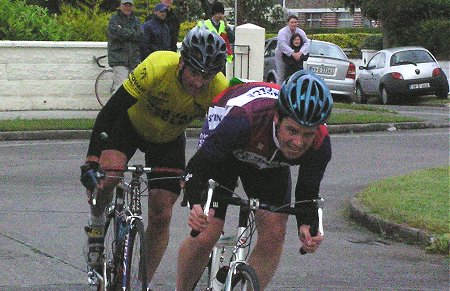
Accelerating
|
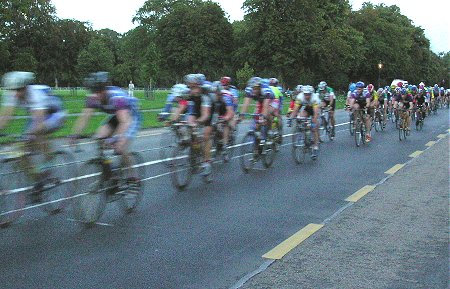
High Speed on the Flat
|
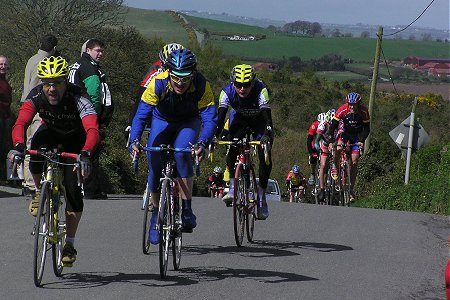
Long Hills
|
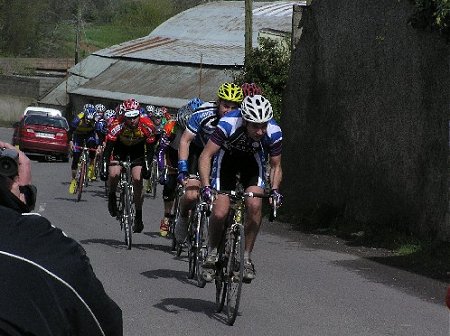
Short Steep Hills
|
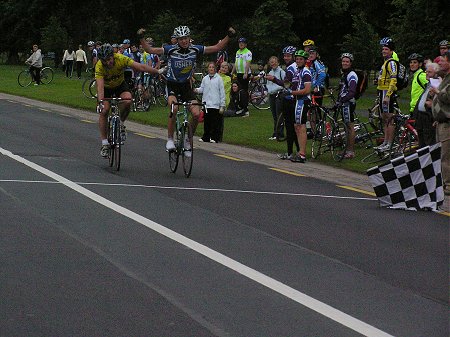
Sprinting
|
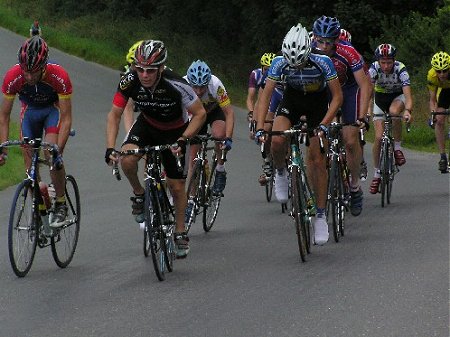
Steady Riding in Groups
|
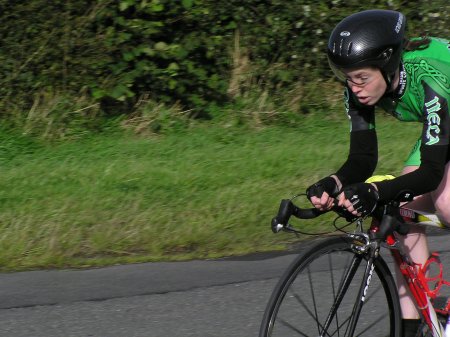
Time Trial and lone Breakaways
|